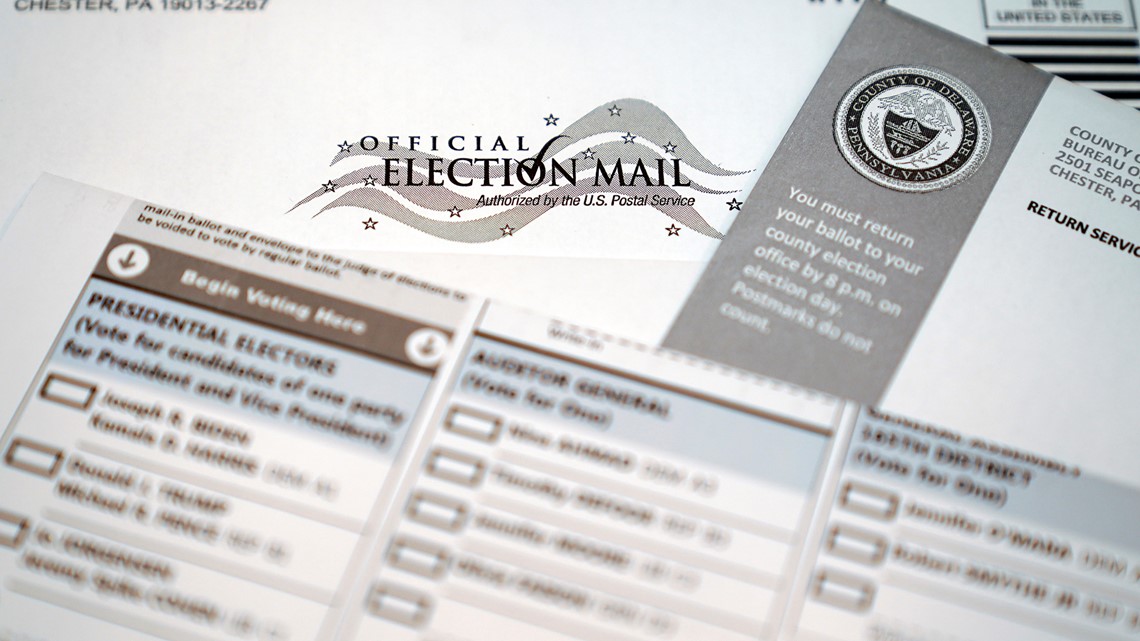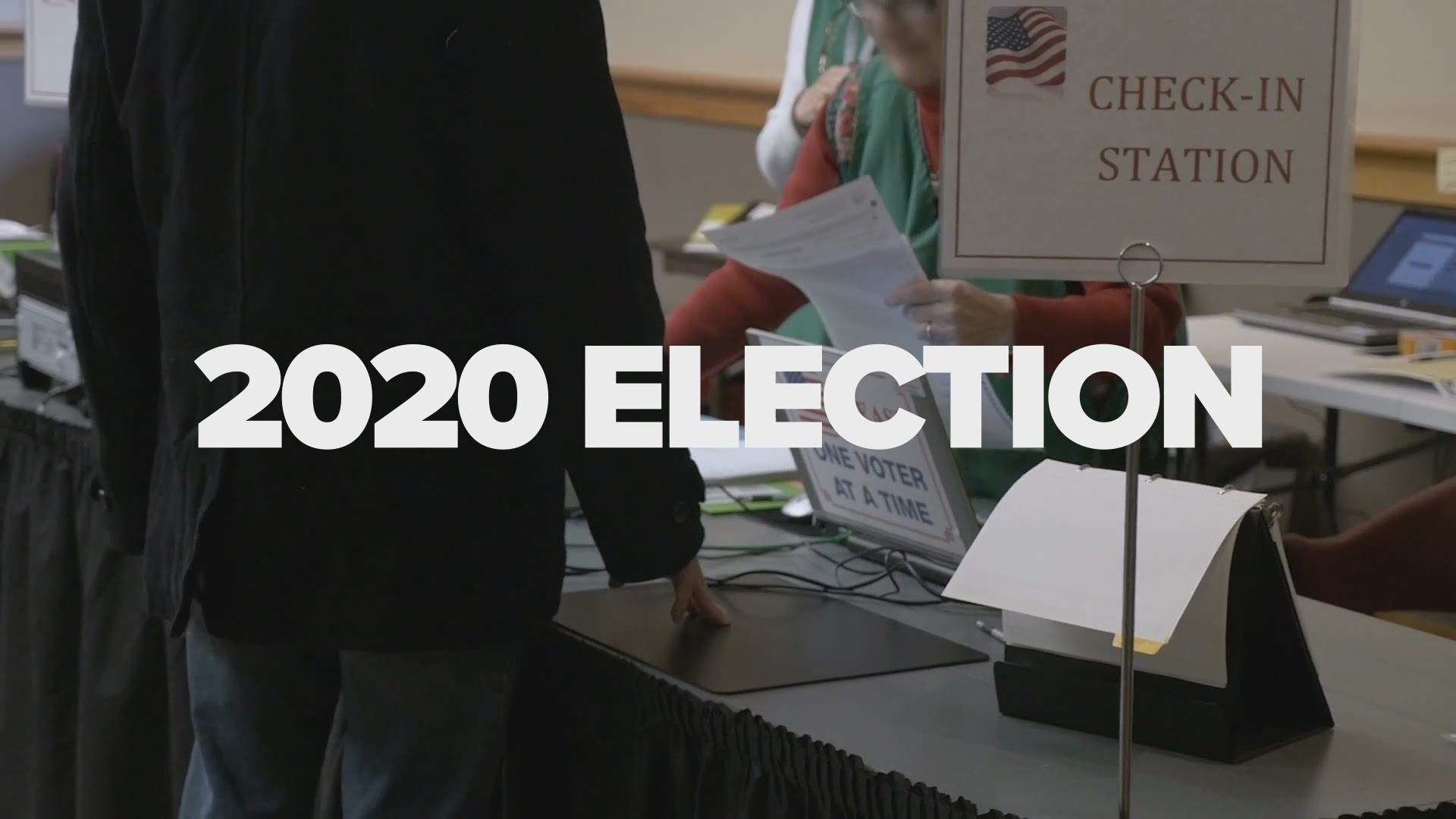WASHINGTON — The Supreme Court will allow Pennsylvania to count mailed-in ballots received up to three days after the Nov. 3 election, rejecting a Republican plea in the presidential battleground state.
The justices divided 4-4 on Monday, an outcome that upholds a state Supreme Court ruling that required county election officials to receive and count mailed-in ballots that arrive up until Nov. 6, even if they don't have a clear postmark, as long as there is not proof it was mailed after the polls closed.
Republicans, including President Donald Trump’s campaign, have opposed such an extension, arguing that it violates federal law that sets Election Day as the first Tuesday after the first Monday in November and that such a decision constitutionally belongs to lawmakers, not the courts.
The state Republican Party chairman, Lawrence Tabas, said the party disagrees with the decision and, noting the 4-4 decision, “it only underscores the importance of having a full Supreme Court as soon as possible.”
“To be clear, the Supreme Court decided not to grant a stay — which does not mean the actions of the Pennsylvania Supreme Court would withstand a legal challenge to their judicial overreach should the court hear the case," Tabas said.
Nancy Patton Mills, chairwoman of the Pennsylvania Democratic Party, accused Republicans of trying to sow confusion and disenfranchise eligible voters.
“This is a significant victory for Pennsylvania voters,” Mills said in a statement.
The Democratic majority on the state’s high court had cited warnings that postal service delays could invalidate huge numbers of ballots and surging demand for mail-in ballots during the coronavirus pandemic to invoke the power, used previously by the state’s courts, to extend election deadlines during a disaster emergency.
Chief Justice John Roberts joined with the three liberal justices to reject Pennsylvania Republicans’ call for the court to block the state court ruling.
Justices Samuel Alito, Neil Gorsuch, Brett Kavanaugh and Clarence Thomas would have required the state to stop accepting absentee ballots when the polls close on Nov. 3.
There were no opinions accompanying the order, so it is impossible to say what motivated either group of justices. The conservative justices have been reluctant to allow court-ordered changes to voting rules close to an election.
The court also is weighing a similar issue from Wisconsin. But in that case, the ruling being challenged comes from a federal appeals court and it’s the Democrats who are asking the justices to step in.
Most states make Election Day the deadline, but 18 states — half of which backed Trump in the 2016 election — have a post-Election Day deadline.
“With nearly a million votes already cast in Pennsylvania, we support the court’s decision not to meddle in our already-working system,” Pennsylvania’s attorney general, Democrat Josh Shapiro, said in a statement.
On a separate track, Republicans in the statehouse have pressed Gov. Tom Wolf, a Democrat, to agree to 11th-hour legislation to eliminate or limit the three days under the court’s order.
The case is one of many partisan battles being fought in the state Legislature and the courts, primarily over mail-in voting in Pennsylvania, amid concerns that a presidential election result will hang in limbo for days on a drawn-out vote count in the battleground state.
In Pennsylvania, the state Democratic Party and a liberal group, the Pennsylvania Alliance for Retired Americans, had sought an extension of the Election Day deadline to count mailed ballots.
With about 2.8 million mail-in ballots requested and approximately 900,000 returned, Democratic-registered voters are requesting mail ballots at a nearly 3-to-1 ratio over Republicans.
In its Sept. 17 ruling, the divided state Supreme Court said ballots must be postmarked by the time polls close and be received by county election boards at 5 p.m. on Nov. 6, three days after the Nov. 3 election.
It also said that ballots lacking a clear postmark could be counted unless there was evidence that they were mailed after the polls closed.



